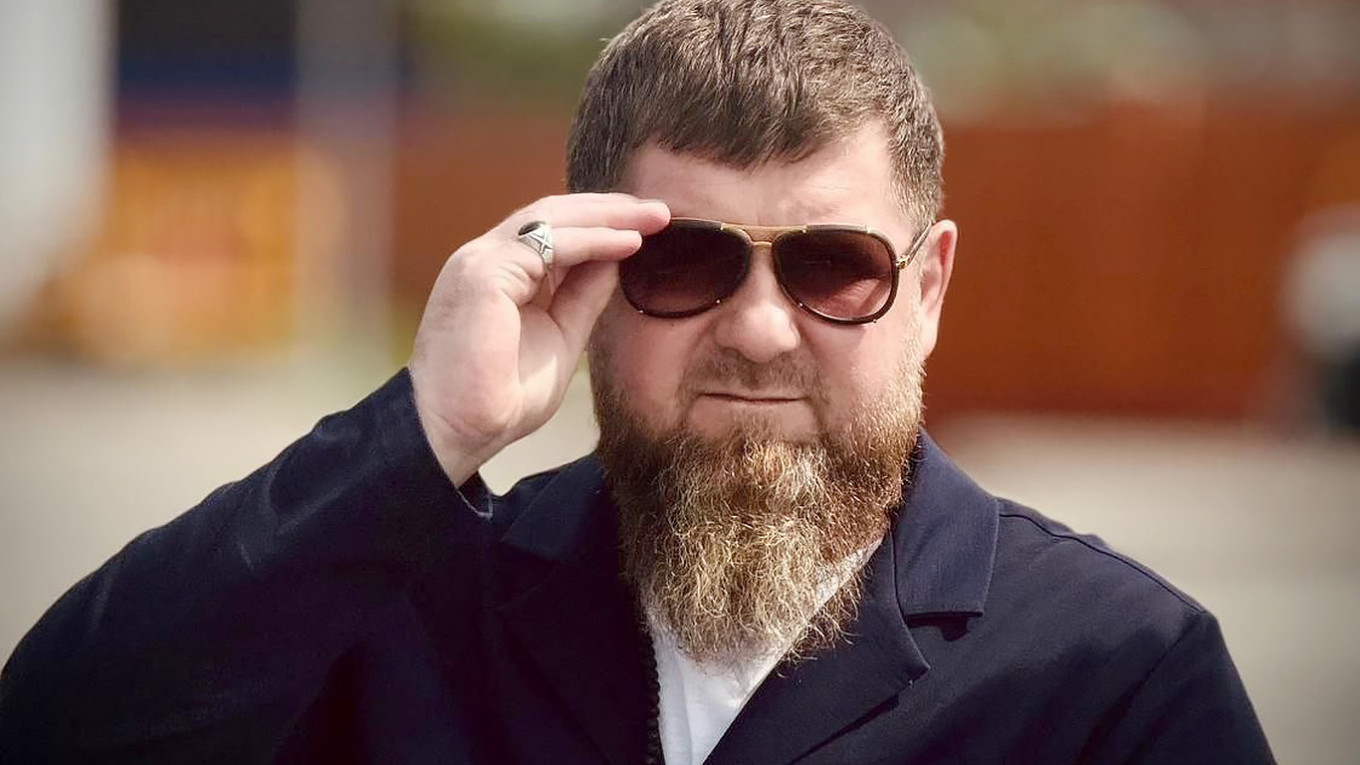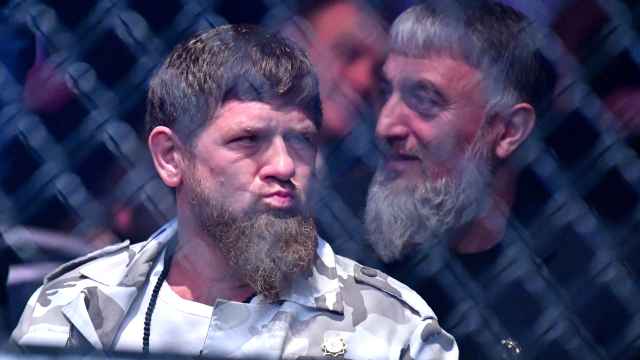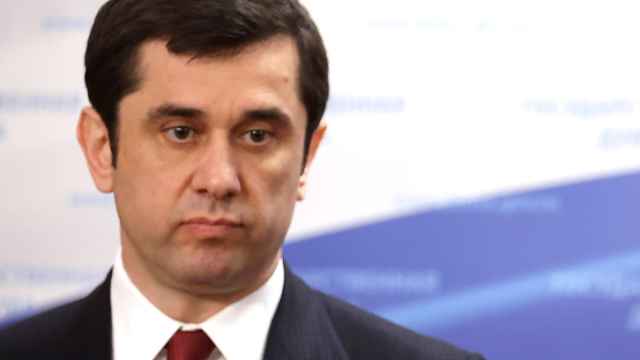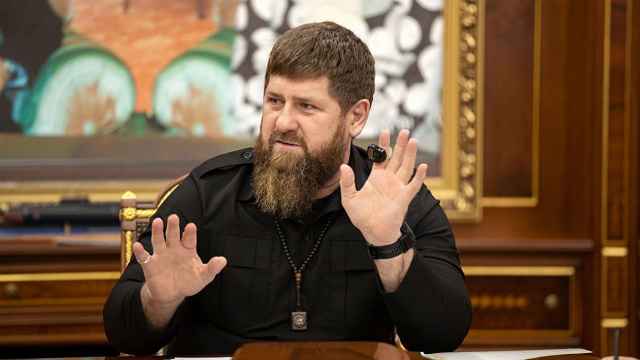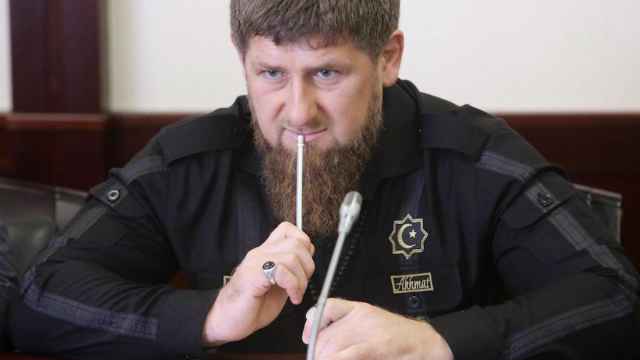Russian investigative outlet Proekt’s latest documentary, “Vertikal’ Kadyrova” (“Kadyrov’s Vertical”), details the rise of Chechen leader Ramzan Kadyrov. Despite the exposé producing a couple of genuine revelations, its depiction of Kadyrov’s ascension is slanted and even conspiratorial, leaving me wondering why the investigation was published in this manner. The most important information could have been more effectively and efficiently conveyed similarly to Proekt’s prior investigations.
The film’s slanted perspective was generally panned by the Chechen and North Caucasus opposition for neglecting the Chechen victims of Kadyrov’s violence — the hallmark of his rule. I would go even further to say that Chechens’ subjugation to indiscriminate violence at Russia’s behest and exploitation by Kadyrov are also skipped over, despite their crucial impact on Kadyrov’s ascension.
While this neglect somewhat undermines later claims, such as about Kadyrov’s harem or the Yamadaev brothers’ survival — both of which rely on trusting minimal sourcing — Proekt has conducted phenomenal research, including details that the investigators themselves seemingly undervalued.
The film’s account glosses over the formative early years, all the while colored by conspiracy. With the film starting in 1995, why discuss the First Chechen War while failing to mention it started in 1994, which would still ignore Yeltsin’s military failure in 1992? If a specific focus on Kadyrov’s rise is the answer, then why did the documentary waste time on irrelevant facts relating to Chechen independence, the First War, and the start of the Second War? These questions point to the absence of crucial actors in the regime.
Proekt also presents convoluted conspiracies as conclusive, ignoring established evidence. Though rivals of Ramzan Kadyrov’s father Akhmat Kadyrov like Movsadi Baysarov, the Yamadayev brothers and Zapad Battalion commander Said-Magomed Kakiev stood the most to gain from Akhmat’s 2004 assassination, Proekt fixates on Ramzan as the potential perpetrator, with the only difference between him and the family’s rivals being that he was in Moscow at the time.
Continuing with this tendency, Proekt questioned why feudal norms of succession would break by skipping over Ramzan’s elder brother Zelimkhan. However, they already answered their own question: Ramzan was preferred by their father. Furthermore, according to Proekt’s version of the story, Zelimkhan, though his mother’s favorite, was a heavy addict.
Rather than following the logic of their reporting, conspiracy triumphs once again. Here, it plays out in the analysis of Akhmat and Zelimkhan’s deaths. As described above, Proekt ignores that other powerful local actors were still in play, with the support of federal actors, at the time of Akhmat’s death.
Further, their justification for the assassination was Akhmat’s insistence on gaining a stake in Chechnya’s petrochemical wealth. This argument can be disproved by Ramzan’s repeated demands for these same revenues. Consideration of Zelimkhan’s death, again with Ramzan in Moscow, ignores that the elder brother was both bereft and addicted to narcotics, coming months after the death of his father.
The final historical conspiracy concerns officials living on Russian military grounds, which Proekt considers “a telling detail” of Kadyrov’s untrustworthiness and complicity in the prior deaths. Suffice it to say, this assertion deliberately forgets that an insurgency was still raging and that Chechens, including those who had recently jumped camps, lacked trust among the siloviki.
Generally, the documentary’s narrative slant neglects that Chechens have repeatedly suffered at the hands of the Soviet Union and Russia and that they have borne the vast majority of consequences of Kadyrov’s rule.
This is epitomized by Proekt’s argument that Chechen separatist leaders should have never been allowed in Moscow for negotiations during the interwar period, due to their actions during the First Chechen War. Were one to continue this logic, Russians should not be allowed in Chechnya because of the multiple genocides and prolific war crimes committed by the country since 1945.
Regarding the latter, other than briefly highlighting Kadyrov’s FSB-sponsored beheading campaign between 2000-2003, the widespread violence that underpins his regime’s stability goes unmentioned.
Similarly, this telling whitewashes all of Kadyrov’s opponents, no matter how horrendous they were.
For instance, in the list of political murders “in which Kadyrov may have participated” — the deaths of journalist Anna Politkovskaya, human rights activist Natalia Estemirova and bodyguard-turned-informant Umar Israilov — are placed alongside those of FSB-sponsored warlord Movladi Baysarov and notorious war criminal Yuri Budanov. The former three were civilians exposing the Kadyrov and Putin regimes’ violence; the latter pair were perpetrators of this violence.
Finally, Kadyrov’s embezzlement takes primacy in the documentary’s coverage of corruption. Meanwhile, his regionwide racketeering scheme against his subjects is omitted.
Despite these drawbacks, Proekt’s investigation revealed several crucial facts about Kadyrov’s business and familial networks. Most importantly, they unearthed hard evidence that his company Benofon is a key node in the regime’s nexus of embezzlement and money laundering. Benofon then passes these funds through a variety of shell individuals in Chechnya and beyond.
The “Beno” (short for the Benoi clan the Kadyrovs hail from) firms are generally understood to be key pieces in the regime’s financial corruption. For example, Benodent shares an address with two other dental clinics with no online presence, all of which are owned by the in-laws of Ramzan’s newly married son Akhmat. Without the financial documents acquired by Proekt, however, evidence would have remained circumstantial.
In family matters, the documentary's reportage of the true extent of Kadyrov’s “harem” and how many are the true mothers of his children may appear to be salacious gossip. However, it has important implications for understanding the regime and its potential succession. Proekt alleges that Ali and Adam are not the sons of Ramzan’s official wife Medni, reinforced by their marriages to members of the powerful Delimkhanov and Geremeev families.
The only other case of such blatantly high-profile marriages is the marriage of Kadyrov’s daughter Tabarik to the son of Deputy Prime Minister Abuzaid Vismuradov, a fact that would seemingly suggest her mother is not Medni. The apparent reason for such strategic marriages is to shore up against any risk of their legitimacy coming into question, particularly with the sons vying to succeed their father.
Additionally, Kadyrov’s harem helps point toward financial assets, such as his second wife Fatima Khazueva’s secondary connections to Tabarik’s burgeoning business empire.
The final revelation relates to how this reporting highlights the overlooked agents of the Kadyrov regime, and thus its true reach beyond Chechnya. Another middleman, Sergei Kropachev, is brought to light. Kropachev helped Kadyrov gain stakes in Starbucks and McDonald’s during the takeover of their Russian operations after the invasion of Ukraine.
Finally, this reporting expands the argument that Kadyrov’s capability for the use of force includes an informal Kadyrovtsy, among which former officials and criminal elements are included.
While these details are extremely illuminating, others are equally, and in one case more, significant. However, they are buried, not just chronologically within the exposé, but in an apparent naivete toward how the Kadyrov regime operates — indicated above systemically in the consistent negligence of non-Kadyrov agents of the Kremlin and the general bias against Chechens.
The first undervalued detail is how Dzhabrail Eldarov — who is connected to the 2015 assassination of opposition politician Boris Nemtsov — and his wife Laisen Iskuzhina change their surnames, essentially playing an identity shell game to help murderous activities. This contribution further suggests that name changes are a deliberate tactic of the Kadyrov regime — beyond adopting Russified names — to mask its agents’ activities.
This dynamic was earlier evident with Valid Korchagin, who acquired stakes in the OBI stores and the Ilyich metallurgy plant in occupied Mariupol for the regime. However, he is better known by his original surname, Geremeyev. This identity strategy is crucial to attempting to ascertain the Kadyrov regime’s true reach.
The most important detail buried in the documentary is that three Yamadaev brothers survive. However, which ones are still alive remains a question, as even their true number remains somewhat debated. Ramzan has long hunted any rumor of their existence, and their survival suggests that someone is helping them. The survival of any number of this clan is a threat to the Kadyrovs should their grip on power falter and the federal siloviki decide to make a move.
While these specific details are probably not ideally conveyed on their own through a conventional written report, there are certainly important revelations that could have been.
There is plenty in Proekt’s documentary to critique. But I look forward to the next details on the Kadyrov regime they manage to unearth.
A Message from The Moscow Times:
Dear readers,
We are facing unprecedented challenges. Russia's Prosecutor General's Office has designated The Moscow Times as an "undesirable" organization, criminalizing our work and putting our staff at risk of prosecution. This follows our earlier unjust labeling as a "foreign agent."
These actions are direct attempts to silence independent journalism in Russia. The authorities claim our work "discredits the decisions of the Russian leadership." We see things differently: we strive to provide accurate, unbiased reporting on Russia.
We, the journalists of The Moscow Times, refuse to be silenced. But to continue our work, we need your help.
Your support, no matter how small, makes a world of difference. If you can, please support us monthly starting from just $2. It's quick to set up, and every contribution makes a significant impact.
By supporting The Moscow Times, you're defending open, independent journalism in the face of repression. Thank you for standing with us.
Remind me later.


